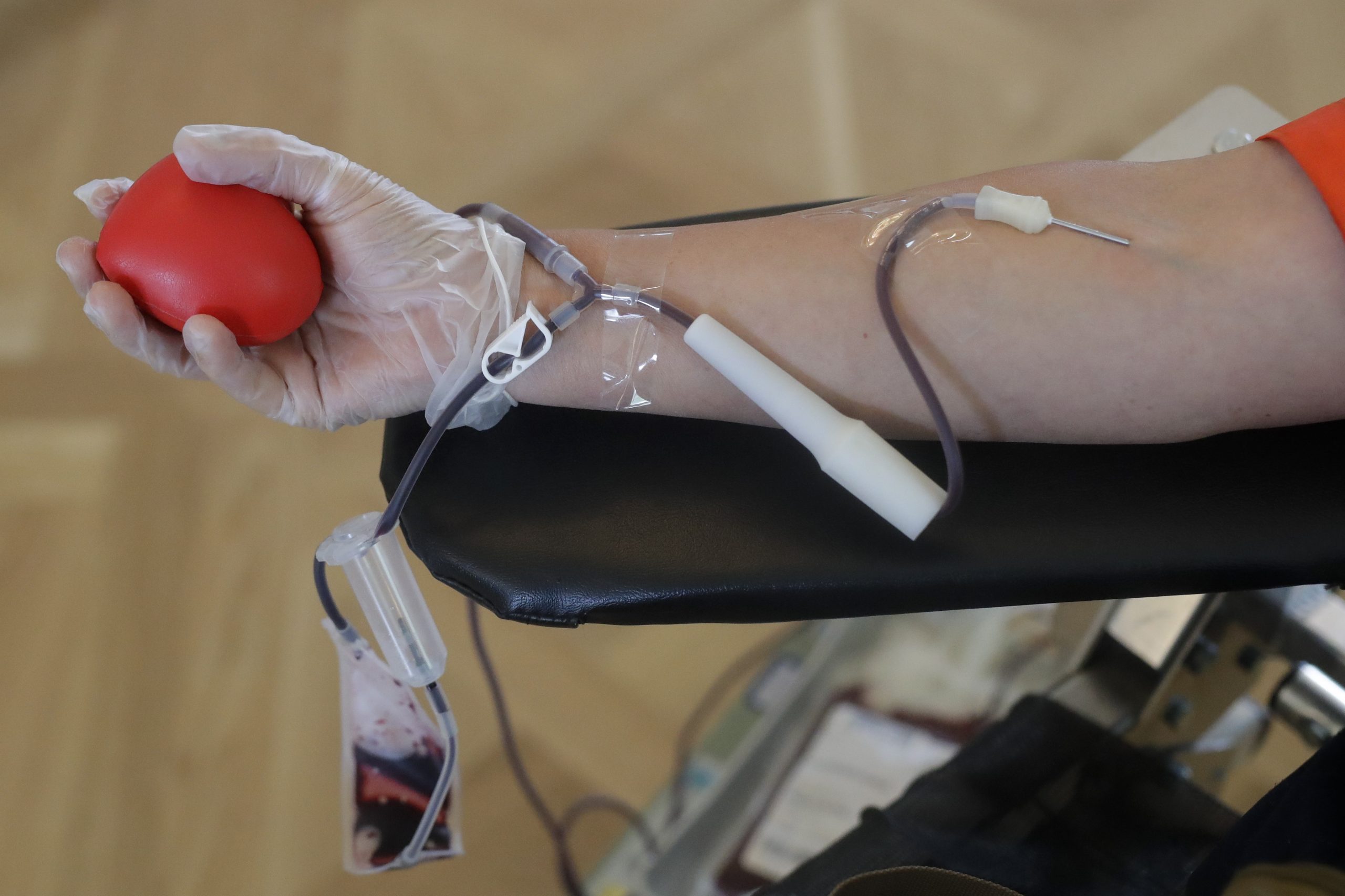
Gay and bisexual men in monogamous relationships can give blood in the U.S. without abstaining from sex under updated federal health guidelines that focus on donors’ behavior, not their sexual orientation.
"We applaud the FDA's Landmark announcement of this individual donor assessment final guidance," Brooke Way of Vitalant, a major Colorado blood bank, said. "It's the first time in 40 years that we have a more inclusive questionnaire, which will include all genders."
The Food and Drug Administration guidelines finalized Thursday ease decades-old restrictions designed to protect the blood supply from HIV. The agency announced plans for the change in January and said this week the new approach can now be implemented by blood banks.
"Our hope is this will allow so many more people to come give blood," Way said. "It will allow more people to be eligible to come give blood year round, and that will help alleviate these shortages. We've been in a blood shortage since January. We need more regular donors and first time donors."
The updated guidelines do away with a requirement that men who have sex with men abstain from sex for three months prior to giving blood.
Instead, all potential donors — regardless of sexual orientation, sex or gender — will be screened with a new questionnaire that evaluates their individual risks for HIV based on sexual behavior, recent partners and other factors. Potential donors who report having anal sex with new partners in the last three months will be barred from giving until a later date.
The FDA said the new policy reflects the latest scientific evidence and is in line with rules in the U.K. and Canada.
It’s the latest move by the FDA to broaden donor eligibility, with the potential to boost donations.
“The implementation of these recommendations will represent a significant milestone for the agency and the LGBTQI+ community,” Dr. Peter Marks, director of the FDA's center for biological therapies, said in a statement.
Gay rights groups have long opposed blanket restrictions on who can give blood, saying they discriminate. Medical societies including the American Medical Association have also said such exclusions are unnecessary given advances in blood testing.
Anyone who has ever tested positive for HIV will continue to be ineligible to donate blood. Those taking pills to prevent HIV through sexual contact will also still be barred, until three months after their last dose. The FDA noted that the medications, known as PrEP, can delay the detection of the virus in screening tests.
The Human Rights campaign, an LGBTQ+ advocacy group, called Thursday's announcement “a real step forward" in a statement. It added that more ”can and must be done so that people taking PrEP can donate as well."
The FDA sets requirements and procedures for U.S. blood banks. All potential donors answer questions about their sexual history, injectable drug use and any recent tattoos or piercings, among other factors that can contribute to the spread of blood-borne infections. Donated blood is then tested for HIV, hepatitis C, syphilis and other infectious diseases.
In 2015, the FDA dropped the lifetime ban on donations from men who have sex with men and replaced it with a one-year abstinence requirement. Then in 2020, the agency shortened the abstinence period to three months, after donations plummeted during the COVID-19 pandemic.
Regulators said there has been no negative impact on the blood supply as a result of those changes.
Matthew Perrone/AP








